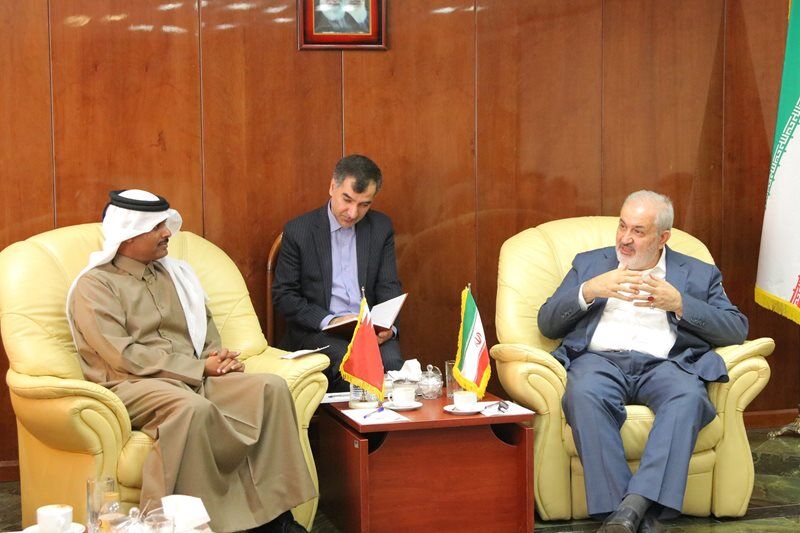
Based on its latest financial figures, Vodafone Qatar has continued to gain ground on its local rival Ooredoo, but four years after launching operations, remains a distant second in the country’s mobile market.
In a press conference announcing its first-half numbers yesterday, the company reported another loss, but the QR160 million (US$43.95 million) is an improvement over the QR240 million (US$65.92 million) in red ink the company shed a year earlier.
Vodafone officials yesterday also offered a glimpse into where it currently stands with residents, and discussed plans for the future.
Nearly one-third of Qatar’s prepaid and post-paid wireless users are now Vodafone customers, officials said. The company’s market share stood at 32.3 percent at the end of September, up from 30.5 percent a year earlier.
The target, according to local business magazine The Edge, is to capture 40 percent of the market by 2018.
Over the last six months, the company added more than a quarter of a million new mobile customers – in part thanks to the population boom. Its mobile base now stands at 1.2 million, a 27-percent increase compared to this time last year.
The numbers show a considerable increase from September 2009, when Vodafone had 151,000 users and 6.6 percent of the market. By September 2011, that had increased to 814,000 users and a 28-percent market share.
Speaking to reporters, new chief executive Kyle Whitehill, who took the top job with Vodafone Qatar in July, said:
“It’s a very pleasant position to be in as CEO. We remain incredibly optimistic about the potential for future market growth.”
Price increases
Both Vodafone and Ooredoo upset many customers late last month when the two carriers hiked international calling rates. When asked by reporters about the price increase, Whitehill said it was driven by climbing rates that foreign telecom firms charge Vodafone for handling its calls, something he described as “largely out of our control.”
He added that the entrance of Vodafone into a monopolistic mobile market has caused overall prices to drop:
“In the last two to three years, we have significantly reduced the cost of the calls that are made on a day-to-day basis,” he said.
Despite praising the benefits to consumers of Vodafone’s entry, Whitehill dismissed the suggestion that the country could support a third carrier:
“If I look at comparative populations, if feels like a tough place to come as a third operator when you still have such a monopolistic position in some market segments. It would be hard to imagine what a third operator would be able to do without some structural changes in the marketplace.”
When asked by Doha News to respond to a recent UN report that found that Qatar residents paid the highest costs in the Gulf for telecom services such as Internet and phone, Whitehill said that when looking exclusively at the cost of mobile services, Qatar is “incredibly competitive.”
He speculated that the report’s overall findings were driven by telecom market segments that Vodafone Qatar is not active in.
Bottom line
Chief financial officer Steve Walters told reporters that the company met its internal targets for all of its key financial metrics. First-half revenues climbed by a third year-over-year to QR925 million (US$254.07 million), driven both by new customers as well as higher average sales per user, which increased 5 percent.
“There is a huge demand for mobile data … That gives us great comfort that our revenue growth will continue,” Whitehill said.
Walters said that while he expects Vodafone Qatar to break even in “the next couple of years,” his focus is on bringing the company into a position where it can start paying dividends to shareholders.
The company has significantly improved its balance sheet in recent years.
In 2010, Vodafone reported a first-half loss of QR312.4 million (US$85.81 million) and revenues of QR385 million (US$105.8 million).
But its financials figures are still dramatically overshadowed by its main competitor.
By comparison, Ooredoo reported a QR1.7 billion (US$470 million) first-half profit earlier this year on revenues of QR17.1 billion (US$4.7 billion).
What’s next
Vodafone Qatar spent 12 percent of its revenues, or QR110 million (US$30.21 million), on capital expenditures, the least it has invested in the area in five years, according to figures provided by the company.
However, Walters said he expects to double Vodafone Qatar’s capital expenditures over the next six months.
Whitehill said his focus is on improving coverage in the “three Ds, which includes Doha (meaning indoor spaces such as shopping malls and office towers); the desert; and in new developments, such as Msheireb and Lusail.
The company is also upgrading the speed of its mobile networks and has activated several 4G sites in anticipation of a larger deployment in the first three months of 2014.
Thoughts?







